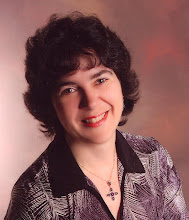Why Good Friday Matters
Luke 9:24 “For those who want to save their life will lose it, and those who lose their life for my sake will save it.”
Yesterday I was at the annual meeting of the Massachusetts Society of Mayflower Descendants. The speaker was Paula Peters (pictured here), the Marketing Director of Plimoth Plantation, the living history museum here in Plymouth that depicts the lives of the Plymouth colonists and the Mashpee Wampanoag Tribe after the landing of the Mayflower. Paula is a member of the Wampanoag Tribal Council.
Paula’s speech was notable because she is the first Wampanoag speaker in the Society’s history. There was actually one other time when a member of the tribe was invited. It was in 1970 that the Society invited Wamsutta Frank James as part of the celebration of the 350th anniversary of the Mayflower's arrival.
His speech (which had to be submitted ahead of time) was so severely censored, however, that he refused to come and deliver the non-descript pabulum that was left over. You can read his intended speech here. So it took some time before the groups got together again--thirty-nine years to be exact. Paula’s speech was not censored nor asked for ahead of time, nor did she pull any punches in describing what white people remember on Thanksgiving as a day of mourning for her people.
While Paula was clear about the experience of Native peoples after the arrival of the Mayflower, she was also clear that she was not there to bring us guilt. She was bringing us the responsibility of creating a more hopeful future, a hope that was acted upon, in a small but important way, yesterday. She received a standing ovation from the 150 people there—people who have long resisted seeing their Mayflower ancestors as anything but saintly icons who stood for religious freedom and democracy. Paula’s husband, also a tribal member, wiped a tear from his eye.
On the drive home, I thought about what I had just experienced in light of Holy Week and the way I have experienced church across 50 years of Holy Weeks. What I have seen is that, at least in American Protestantism, we want all the glory and celebration of Palm Sunday and Easter. A lesser but still significant number want to do some reflection on Maundy Thursday. But the number of people who want to climb the hill of Calvary to a bloody execution drops off a cliff. Many communities do Good Friday services together ecumenically so that the small numbers are masked by bringing many churches together.
My interpretation of that phenomenon is that we are not fond of the message that in order to experience resurrection, we have to die first. Jesus set the stage in this passage in Luke (and others like it in the other gospels). We have to die in order to live. He’s not calling for martyrdom or saying that the way to salvation is through a literal suicide. I think he means things like what happened at the annual meeting of the Massachusetts Society of Mayflower Descendants. In order to move into a more hopeful future, we have to kill off some of the cherished fictions of the past. As long as we held onto those whitewashed notions of our ancestors, we could not be reborn into a bright and truth-filled future.
And of course it’s not just the Mayflower descendants or the idealized notion of the first Thanksgiving. Each of us travels across the span of our lives collecting beliefs and assumptions that inform how we see the world. Some of them are accurate and good. But many turn out to be cherished fictions, designed to keep us from having to face certain unpleasant truths about ourselves and therefore do something about them. We cling to bad habits. In conflict we are righteous and those who oppose us are evil or, in cases of abuse, we believe that we are evil (or at least inept), and that our abuser is good. We all do it—and apparently they did it in Jesus’ day as well.
The message of Jesus, both in his teaching and in his example this week, describes a different way. There is no resurrection without death. If we are willing to kill off those bad habits and those cherished fictions, then and only then will we rise up to new life in Christ.
It is not just Easter; it is Holy Week. All of it. Whether in the public rituals of church or in the privacy of your spiritual prayer closet, follow the footsteps of Jesus this week. The steps up to the Place of the Skull are heavy, and it’s common to fall several times under the weight of such a cross. But keep going. The death of those old ways is necessary and ordained by God. Easter awaits—a life out from the shadows and into the truth. If the Mayflower descendants can do it, you can too!
Labels: ancestors, death, Easter, Good Friday, Holy Week, Mayflower, resurrection, Wampanoag

